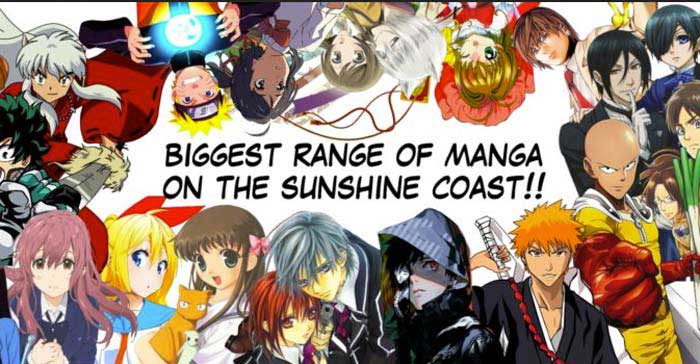An Australian family has turned opened a new store dedicated to pop culture. Ever since this anime, manga and pop culture shop, Kazzanga, opened in Currimundi, it has Sunshine Coast anime and manga fans raving. The store was launched by Kazz Fulloon launched the Currimundi shop on the Nicklin Way with the help of her 18-year-old twin daughters, Jemma and Jamie.
The store is particularly dedicated to manga - Japanese graphic novels and comic books - and anime - animated television shows and films.
This might the family's first business venture, but once it opened, word spread and soon fans started to flock to the store. “We've got lots of regulars coming in,” Ms Fulloon told Sunshine Coast Daily.
Accordingly, Ms Fulloon has been a devoted fan of Sailor Moon and Astro Boy since she was a child, and it was that passion for anime and manga that propelled her to open the store. Her children inherited the same kind of passion for Japanese pop culture from their mother as they grew up watching anime on television.
Ms Fulloon said that some of the most avid manga readers in the store were special needs children, including children with autism who had always hated reading. She said: “Because these kids are so visual, they love manga.” Manga had a strong impact on her own daughter Jemma, who is autistic. According to Ms Fulloon, manga changer her life.
Although manga is particularly beneficial for kids with autism, all kinds of people, from young kids through to middle-aged residents, are attracted to the store, and they wander the shop, browsing the selection.
The most popular titles, according to Ms Fulloon, include Tokyo Goul, Pokemon, and Sword Art Online, as well as any Studo Ghibli, Marvel or DC titles.
Mr Fulloon said Japanese pop culture fans were impressed with the store's range of titles, which was even larger than stores in Melbourne. “We can get just about anything through the door,” she said. “We've been able to source really obscure titles that people have only been able to read online.”
Apart from boasting an impressive collection, it is also original. In fact, offerings in store are significantly different to those in established popular culture chain Zing, which runs a Maroochydore store. “We're really into the anime and manga, we carry a lot more (of that),” Ms Fulloon said.
Apart from these collections, the store also sells anime and manga merchandise, ranging from T-shirts to bags, wall scrolls, pop vinyls, board games, cushions and plush toys.
After this initial success, there might be expansion plans on the books. “We're starting small, but we have the shop next door that we can expand into at any time,” Ms Fulloon said.
Japanese popular culture refers to the modern popular culture of Japan, including Japanese cinema, cuisine, television programmes, anime, manga and music, all of which have older artistic and literary traditions, while many of their themes and styles of presentation can be traced to traditional art forms.
Ever since the US occupation of Japan in 1952, Japanese popular culture has been influenced by American meda. Although the American pop culture had a huge impact on Japanese culture, Japan has localised these influences by imitating and partly appropriating the originals. Thanks to this adaptation, Japanese pop culture stands out today as one of the leading and most prominent popular cultures around the world.
Although anime heavily relies on visual impact, it also has some memorable quotes:
Who can forget what Makarov Dreyar (Fairy Tail) said: “Weaklings will stay weak forever. But weakness is not even, since human beings are weak creatures to begin with. Along, you feel nothing but insecurity; that's why we form guilds, that's why we have friends. We walk together in order to live a strong life. The clumsy ones will walk into more walls than the others, and it may also take them longer to get there. If you believe in tomorrow and put yourself out there, you can naturally obtain your strength. That's how you will be able to smile and live strong.”
Jiraiya (Naruto) said: “The true measure of a shinobi is not how he lives but how he dies. It's not what they do in life but what they did before dying that proves their worth.”

